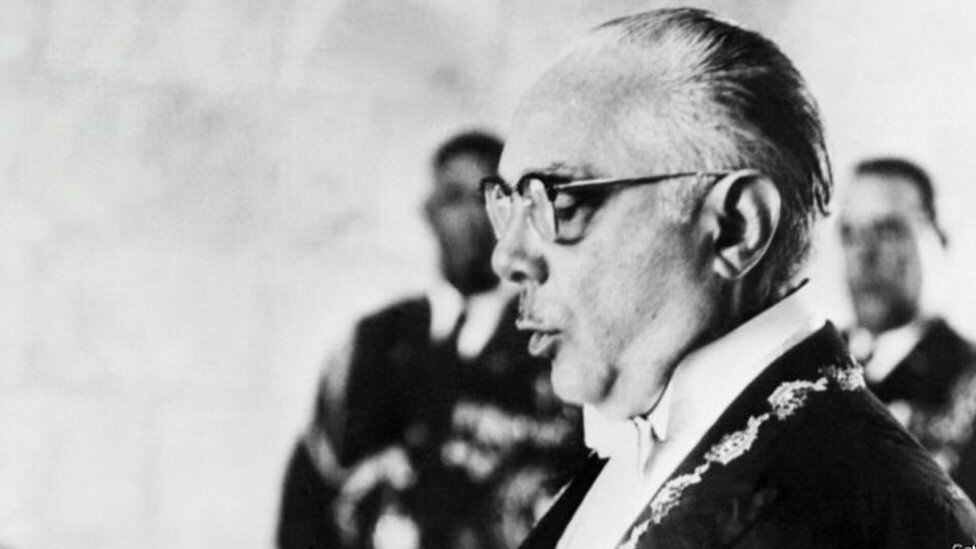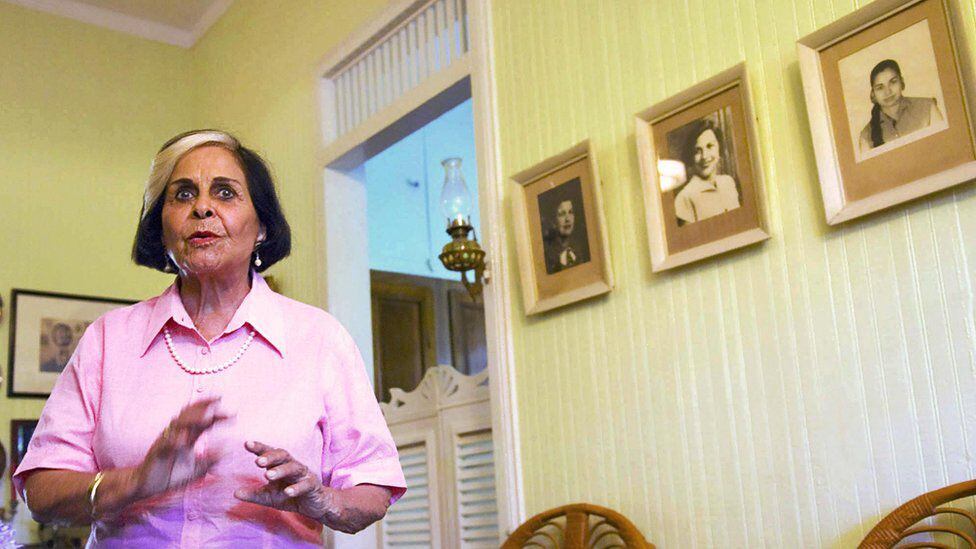Phrases or photos in memory of the Mirabal Sisters They have become indispensable in historic marches and conferences in favor of women and their rights, especially in Latin America. Patria, Minerva and María Teresa, the three Dominican sisters, were murdered in their country on the orders of dictator Rafael Leónidas Trujillo. “If they kill me, I will take my arms out of the grave and I will become stronger”, says Minerva’s phrase most read on the posters in her honor.
TO LOOK: The report for which Maduro took the German channel Deutsche Welle off the air
The impact of her story is such that the International Day for the Elimination of Violence against Women was established in 1999 by the UN, on the date of her death in the Dominican Republic, November 25, 1960.
“The day was used to pay tribute to the Mirabal sisters, as well as the global recognition of gender-based violence,” states the UN on its website.
Patria, Minerva and María Teresa were born in 1924, 1927 and 1935, respectively, in the Cibas region. All three studied in the Dominican Republic. Minerva and Maria Teresa had university degrees.
The Mirabal sisters were known in their country as “The Butterflies”. They and their husbands were involved in activities against the bloody regime that Trujillo led for 30 years and participated in a clandestine movement to resist the dictatorship.
As political activists, the Mirabal sisters became highly visible symbols of opposition to Trujillo, resulting in the persecution and arrest of them and other members of their families on several occasions. But none of that stopped them.
The UN recalls that in January 1960 “Pátria took charge of a meeting that finally established the Clandestine Movement of June 14, in which all the sisters participated. When this conspiracy against tyranny failed, the sisters and their comrades in the Clandestine Resistance Movement were persecuted across the country.”
At the beginning of November of the same year, the regime, which was known for systematically eliminating its detractors, declared that its two problems were the Church and the Mirabal sisters.
The bodies of Minerva, María Teresa and Patria Mirabal were found destroyed on November 25, 1960 in a jeep at the bottom of a ravine in the northeast of the Dominican Republic. Next to them was the driver of the vehicle in which they were traveling, Rufino de la Cruz, who also died.
Their deaths were attributed to a secret police squad sent by Trujillo who intercepted them on a route in the north-central province of Salcedo as they returned from seeing their husbands imprisoned in the San Felipe Fortress, 215 kilometers north of Santo Domingo. .

The women, who were aged between 26 and 36 at the time and had six children in total, were brutally hanged and beaten in an attempt to pass off their murder as a road accident. The car was thrown into a ravine.
“It was a terrible day, because although we knew it, we didn’t think the crime would happen,” says Ángela Belgica “Dedé” Mirabal, sister of Minerva, María Teresa and Patria in the documentary “Las Mariposas: Las Hermanas Mirabal”.

The protests and repudiation of the murder were fundamental in beginning to seal the end of the dictatorship. “The Mirabal sisters were brutally murdered because they were women and activists. His only crime was to have fought for his rights against the Dominican dictator Rafael Leónidas Trujillo”, states UNESCO.
After the murder, Dedé took care of his sisters’ children and was responsible for preserving the family’s memory. She passed away in February 2014, aged 88, in Santo Domingo.
The story of the Mirabal sisters had a great impact on the fight for women’s rights and continues to this day. Thanks to her efforts, in 1981 the first Latin American and Caribbean Feminist Meeting was held in Bogotá (Colombia), where it was proposed to establish November 25th as the Day to Combat Violence against Women.
The sisters are considered a symbol of popular and feminist resistance and are remembered in poems, songs, books, films and television series. Minerva, María Teresa and Patria are also part of the book by Peruvian writer Mario Vargas Llosa “La fiesta del chivo”.
Exactly one year ago, on March 8, 2023, Star+ premiered “The Scream of the Butterflies”, a historical drama inspired by the case of the sisters and the dictatorship of Rafael Leónidas Trujillo.

Furthermore, at the Casa das Irmãs Mirabal Museum, located in the area where the sisters spent their last months before being eliminated, a collection of their personal objects is on display: antique furniture, paintings, dresses and tablecloths, with which they are remembered. and even honored. today.
“The memory of the Mirabal sisters and their fight for freedom and respect for human rights for all transformed them into symbols of dignity and inspiration. “They are symbols against prejudice and stereotypes, and their lives lifted the spirits of all those they encountered and later, after their deaths, not only in the Dominican Republic, but others around the world,” the UN states.
Source: Elcomercio
I am Jack Morton and I work in 24 News Recorder. I mostly cover world news and I have also authored 24 news recorder. I find this work highly interesting and it allows me to keep up with current events happening around the world.

:quality(75)/cloudfront-us-east-1.images.arcpublishing.com/elcomercio/HI6ITKTOO5E3HGMX7O7NNRCQFY.jpg)

:quality(75)/cloudfront-us-east-1.images.arcpublishing.com/elcomercio/LDCA3MNU5FF5JJDIB7WFSF2UEY.jpg)
:quality(75)/cloudfront-us-east-1.images.arcpublishing.com/elcomercio/HVKHEAEGJVDH7ITEZECXDZHDWU.jpg)
:quality(75)/cloudfront-us-east-1.images.arcpublishing.com/elcomercio/3Y5UCERRZZFS3I7MZUEFEOHG4U.jpg)
:quality(75)/cloudfront-us-east-1.images.arcpublishing.com/elcomercio/5FK22BPG6BE4BCPEXITJWHEKJU.jpg)
